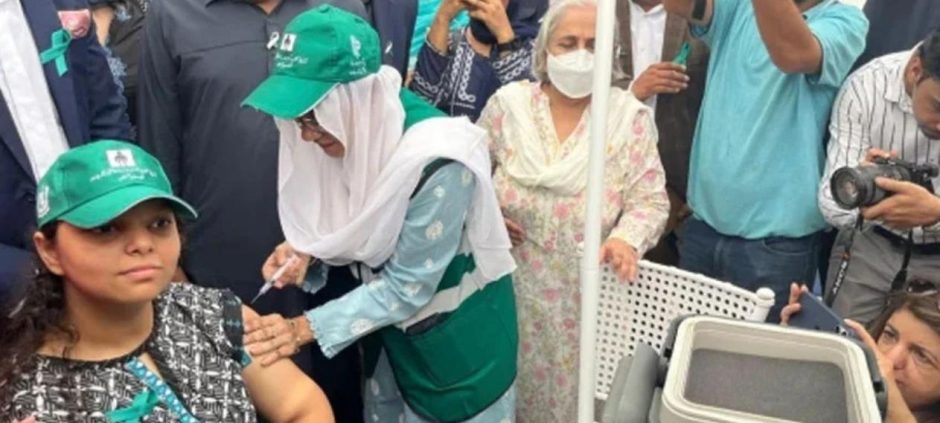The government of Pakistan has launched a new campaign to vaccinate young girls against cervical cancer. A schoolgirl in Islamabad became the first recipient of the country’s HPV vaccine.
Cervical cancer develops in the cells of the cervix, the lower part of the uterus. Most cases are caused by persistent infection with high-risk types of Human Papillomavirus (HPV). If left untreated, the cancer can spread to other parts of the body. Common symptoms include abnormal bleeding, pelvic pain, and pain during intercourse. However, many women do not show symptoms until the disease reaches an advanced stage.
HPV is one of the most common sexually transmitted infections globally. While many HPV infections resolve naturally, some high-risk strains can lead to cervical cancer. Experts say HPV is responsible for nearly all cervical cancer cases. The virus spreads through intimate skin-to-skin contact and can remain undetected for years, highlighting the importance of preventive measures.
The HPV vaccine protects against the most dangerous types of the virus. By building immunity before exposure, it significantly reduces the risk of developing cervical cancer later in life. Health authorities recommend vaccinating girls between the ages of 9 and 14 for the best protection. Pakistan’s campaign focuses on school-going girls to ensure broad coverage.
This initiative marks a major step in improving women’s health in the country. Cervical cancer remains a silent killer in many developing nations due to low awareness, delayed diagnoses, and limited preventive services. By introducing the HPV vaccine in Islamabad’s government schools, the government sets an example for nationwide implementation.
Officials hope the program will not only protect thousands of young girls but also raise awareness about cervical cancer. Regular screening and timely vaccination are key to reducing the disease’s impact in Pakistan and globally.
In other related news also read HPV Vaccine Only with Parental Approval in Punjab Schools











